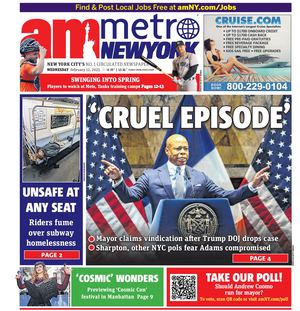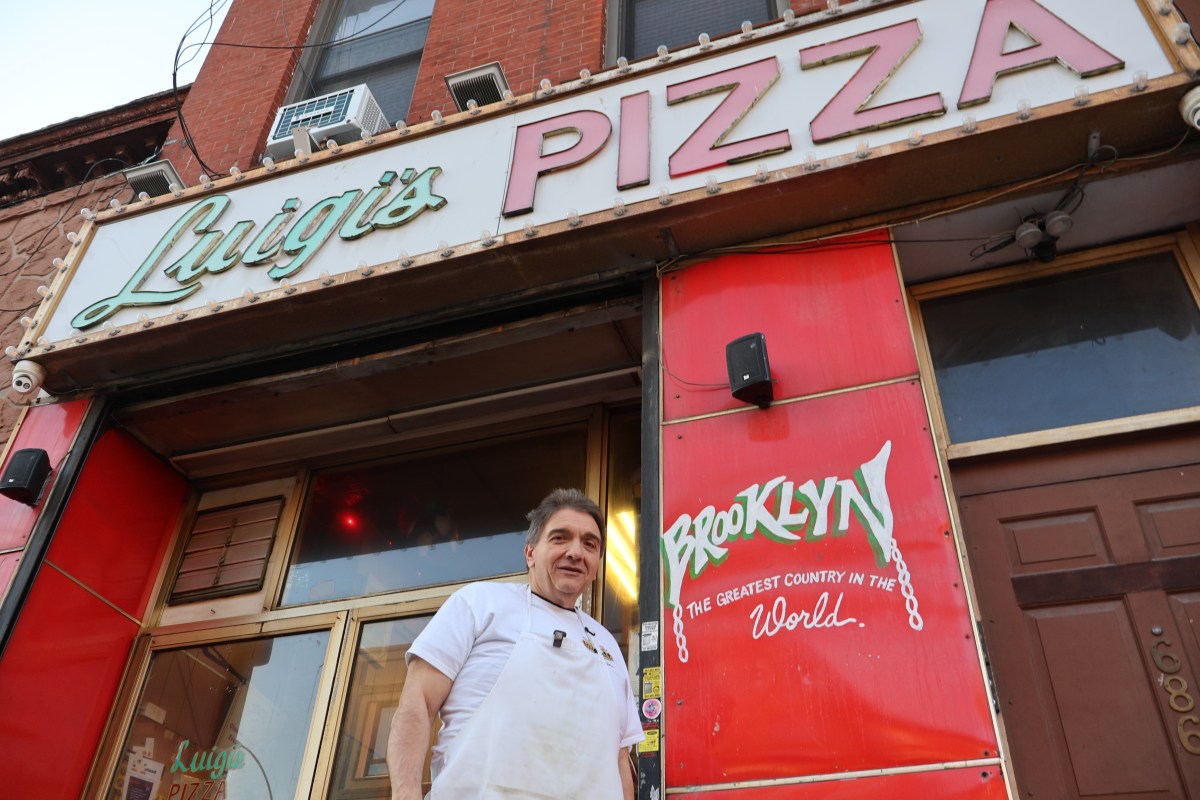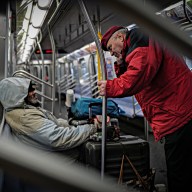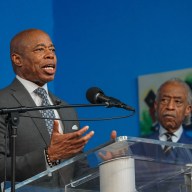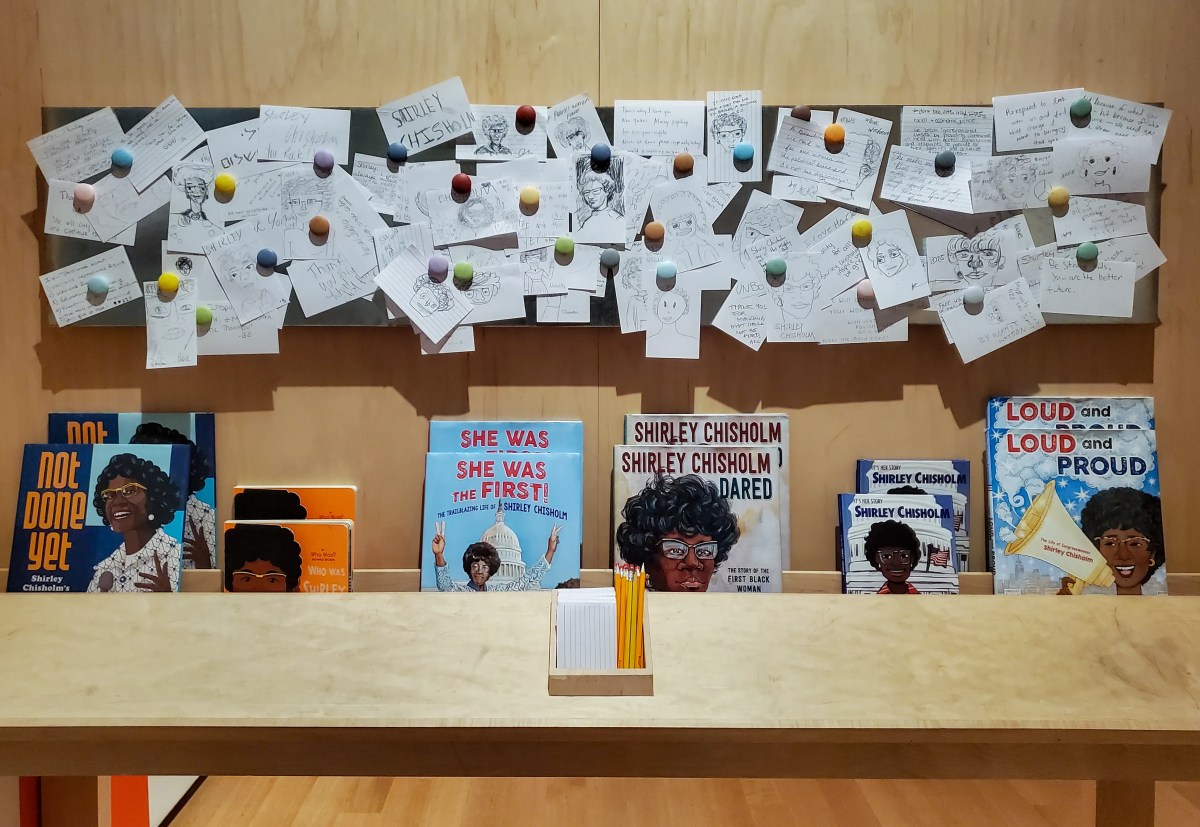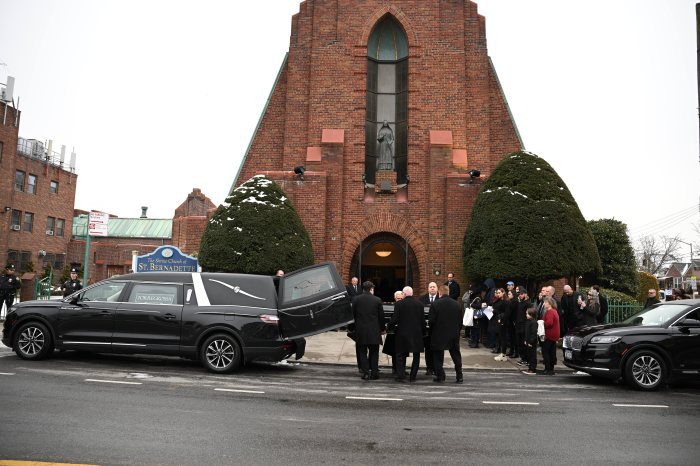Chris Foley has quite a story to tell. He started with an extensive career in finance — beginning at Lehman Brothers in 1997 before moving on to RBC Capital Markets in 2001 and then to the U.S. division of CLSA from 2007 to 2010 — and now, at 42, is a budding actor. After doing standup in clubs like Gotham Comedy and Stand Up NY in the late 1990s and going into improv in 2008, Foley is now performing his one-man comedic play, “Off the Desk (Tales of a Mediocre Stockbroker),” at the Celebration of Whimsy (21 Clinton St.) through Nov. 21. We chatted with the Upper East Side resident about his route from finance to his new office, the stage.
Why did you decide to leave finance?
I was laid off in February 2010. Although, my prayers may have been answered because I used to go to St. Patrick’s cathedral at lunch and pray and say “give me a sign,” and then I got laid off the next day. The stress was just unbearable. I could have stayed in finance but my dream as a kid was to be an actor and I was single at the time and had no kids, and no time like the present. And I felt it was important for me to really go out and follow my dream of being an actor.
When did you realize you love entertaining?
Grammar school I used to entertain my teachers. I used to do a lot of imitations of my teachers and then I would recap the “Saturday Night Live,” re-enact a bit that was on [the most recent show]. This was just in school [in] Manhasset on Long Island.
Was it scary to jump into acting?
It was terrifying because I knew enough people in the entertainment world that had a hard time making money, so it was kind of like well, what kind of day-job am I going to have? And terrified of failure, because as you know it’s a grueling business, it’s hard to make a living and it’s very competitive. But the desire to perform, that yearning outweighed the fear.
How did you prepare for the risks?
I saved money and I lived on that for a while. Recently I got a day-job as a tour guide. It’s called Wall Street Walks. We do tours of Wall Street.
How does someone become a successful actor?
I found storytelling. I started performing with a group called Narativ and I did story slams with them and I then I started performing at The Moth, [a storytelling performance nonprofit] and the folks at Narativ encouraged me to write a one-man show. I had been telling stories about finance and they were like, “Why don’t you write a whole show about it?” And they basically offered me this opportunity to do a one-man show and I did that three years ago. So I wrote it based on my experiences, stories, and then I performed at the New York [International] Fringe Festival 2013.
How do actors make a living?
For me, right now my money is from the tour guides, I don’t make a lot of money. I get $25 a ticket in proceeds, but I had to raise money for the show. I just booked my first job on a TV show, so that’s going to be some income right there, on a show called “Billions” that’s going to be on Showtime. Ideally, you want to start doing commercials and voice-over. I’ve been taking voice-over classes. So right now it’s from the tours, a little bit from acting and there’s going to be some ticket sales. But it’s pretty low-income right now.
How do the skills from your finance career help you now?
It gave me a rich source of material. It gave me a lot of characters that I’m using in the show. Also as a stock broker, there was a lot of rejection. You’re constantly calling these hedge fund people and mutual fund people and they might hang up on you or tell you they’re not interested. It was a sales job, so in the acting world that’s certainly the case and that helped a little bit. It gave me a little bit tougher skin. With acting it feels a little more personal. If you’re not chosen for a role or if you’re a comic and people don’t laugh, that’s pretty devastating. But it prepared me for the rejection somewhat. And I’d rather face rejection in something I love than something I don’t; and understanding business, being able to make business decisions. Basically I’m producing this show and you have to pay people, you have to make financial decisions — what you’re going to pay the director, what you’re going to spend on the set — you have to allocate your resources. And the understanding that sometimes things are business, it’s not personal.
Do you have any bigger dreams for the future?
I would love to be in TV and film. That would be my dream, to be a character actor.
Any advice for readers thinking of making a career 180?
My show really speaks to people that are unhappy in their careers. It’s about this guy’s unhappy in his job and how does he navigate his way to freedom? I would tell people, follow your heart, life is short. Not everyone has the luxury I had where I was single and I didn’t have any kids, but I think it’s really important to be happy.
